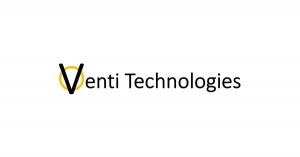Patented algorithm integrates obstacle detection with vector velocity for on-the-go threat detection for autonomous vehicles
Venti Technologies, the leader in safe-speed autonomous vehicles for moving people and goods, today announced that its innovative, patented driverless software platform has benchmarked #1 in the world for its Perception System. Venti’s deep learning-based technology, borne out of leading-edge research from leading academic laboratories, uses unique algorithms to merge obstacle detection with vector velocity. In combination with Venti’s modular architecture that integrates localization and route planning, the Perception System enables autonomous vehicles to detect threats and avoid obstacles with real-time response and re-planning. Importantly, perception is recognized as the foundation of an autonomous vehicle system.
Venti Technologies’ Perception System performance was evaluated by KITTI, an autonomous vehicle performance benchmark used around the world. The evaluation benchmarked Venti’s novel algorithm which takes an image and its corresponding point cloud as inputs, and outputs all the obstacle locations and their velocity. The key idea behind Venti’s technology is to combine the obstacle detection and velocity estimation within the same deep learning network, establishing an end-to-end learning framework. The network learns obstacles’ deep features and their corresponding velocity features jointly. The use of 3D information further improves both obstacle detection and velocity estimation accuracy, producing a superior evaluation in the benchmark study.
“This achievement signifies tremendous success for our novel AI-based approach to autonomous mobility,” commented Shuyan Zhao PhD, co-Founder and Chief Operating Officer of Venti. “We are thrilled with these results, and look forward to continuing to work with our partners and customers to incorporate our technology into more forms of mobility and thus disrupt the global transportation market.”
Xinxin Du, PhD, Founder and Chief Technology Officer of Venti, stated, “Our next-generation automotive vehicles, AV 3.0, represent a unique breakthrough in mature driverless technology. We provide state-of-the-art obstacle perception, avoidance and maneuvering by using rigorous mathematical modeling and theoretically grounded algorithms that ensure adaptivity to changes in the environment. We are very proud of the real-world innovation that our leadership in computer science, artificial intelligence and electrical engineering has been able to deliver.”
Safe-speed autonomous transportation, including the movement of people and goods, represents a $1 trillion worldwide market opportunity. The market includes functional uses such as transport within senior communities, business campuses, and tourism and hospitality locations, as well as transformative uses such as improving manufacturing by extending factory automation outside the factory walls to the entire production yard, all with a purpose of reducing costs and increasing efficiency, access, safety and rider enjoyment.
Venti’s autonomous mobility platform transcends the limits of hand-coded, rules-based systems through rigorous mathematical modeling and theoretically grounded algorithms. The Company has five full-scale deployments currently, including a residential community in Guangzhou; a senior community in Suzhou; an industrial park; and a recreational area in Suzhou. Together these deployments represent the first steps of the autonomous transportation revolution, with people-moving robo-taxi services and shuttles.
Among the most significant advances, Venti’s vehicles are able to maneuver around parked cars, people, animals, scooters and other obstacles, and have 360° vision for optimum safety. The Venti-enabled autonomous vehicles see small obstacles such as a 12-oz. can, and can see around corners. The AVs do not need any lane markers or beacons, can drive forwards and backwards, can do three- and five-point-turns and have state-of-the-art rain operation. Venti’s system is the first in the world to improve both obstacle detection and vector velocity estimation accuracy by merging the analyses, to enable AVs to drive safely and reliably in complex environments.

